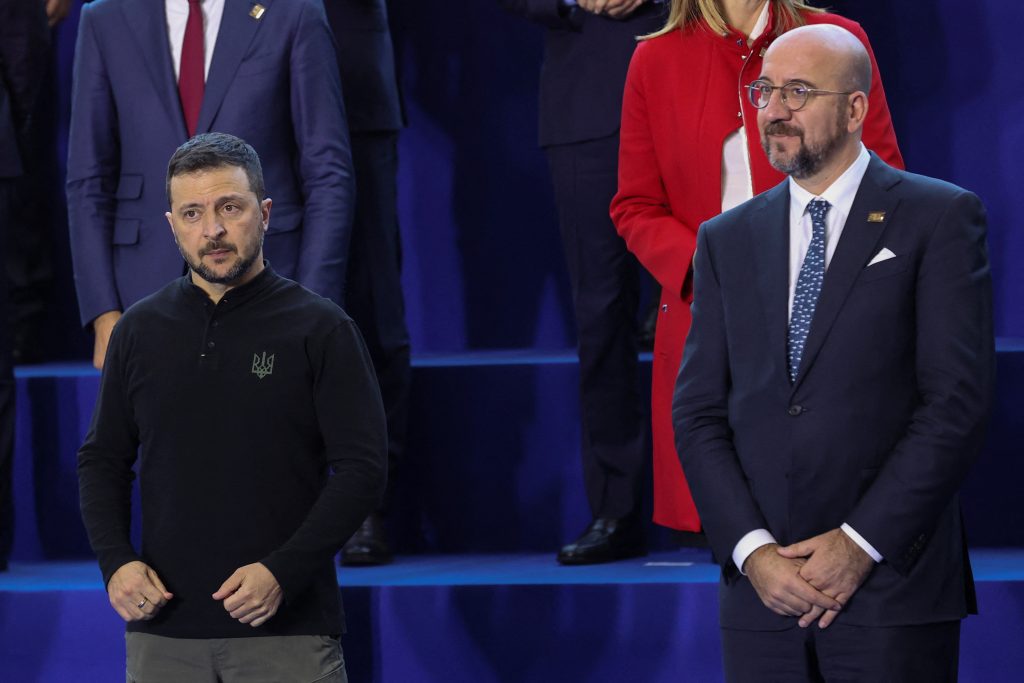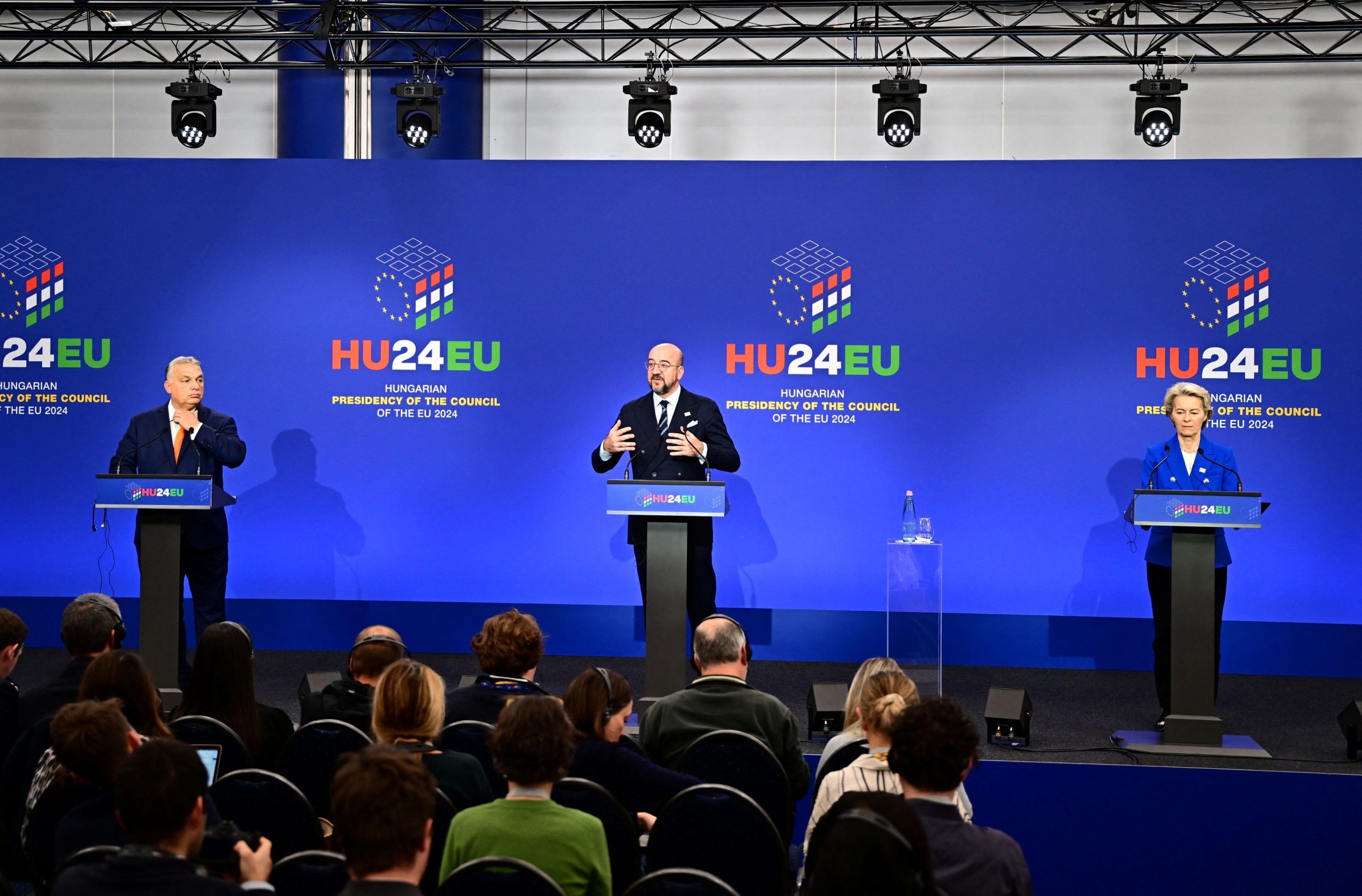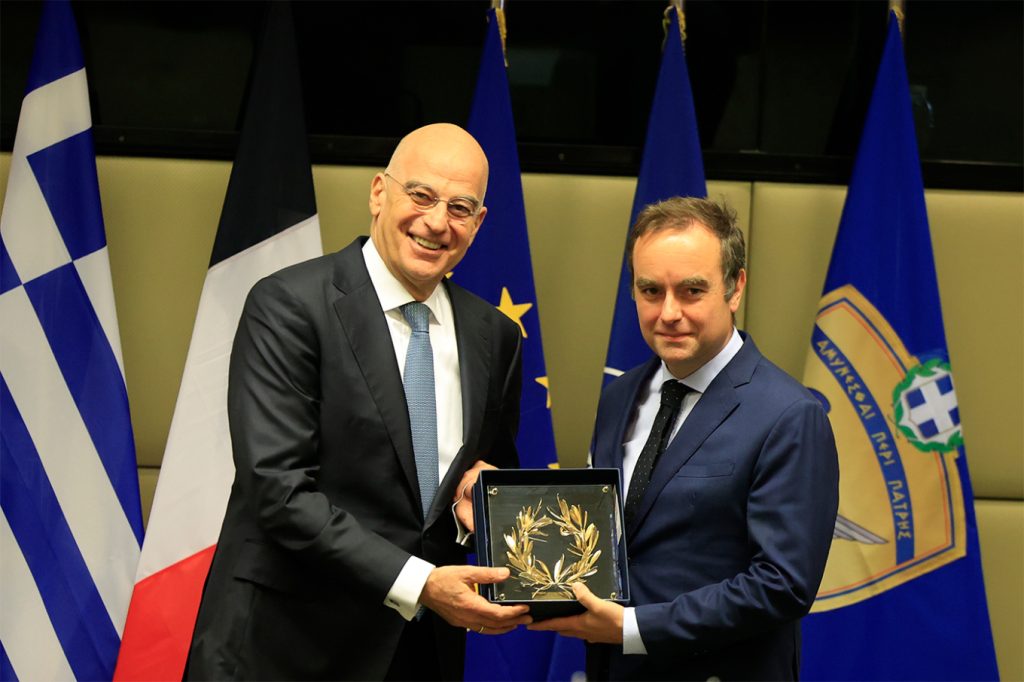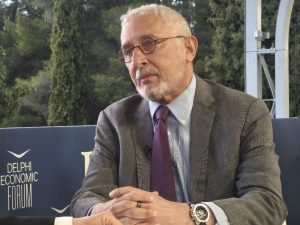BUDAPEST—European leaders have quietly launched talks on how to help Ukraine fend off Russia’s invasion without Washington’s support, even as they try to persuade President-elect Donald Trump not to cut aid to Kyiv.
At a dinner late Thursday in the Hungarian capital, European Union leaders discussed the fallout from Trump’s thumping win on Tuesday and, for the first time, talked through whether European governments could plug the gap if Trump cuts aid to Ukraine , according to people who attended the meeting.
The discussion comes at a moment of extraordinary insecurity, economic fragility and political crisis in Europe . With Russian forces making gains on the battlefield in Ukraine, Trump’s victory confronts European capitals with the prospect of sharply reduced U.S. military protection.
“There can be differences of approach around this table, but I have a profound conviction that our interest is the same,” French President Emmanuel Macron told his counterparts from the EU and its neighbors in Budapest on Thursday. “Our interest is that Russia doesn’t win this war…Because if it wins, that means that there will be an imperialist power lined up on our borders to which we have said, ‘It’s fine, you can be expansionist.’”

Ukraine’s President Volodymyr Zelenskiy and President of the European Council Charles Michel pose for a family photo during the European Political Community Summit at the Puskas Arena, in Budapest, Hungary, November 7, 2024. REUTERS/Bernadett Szabo
Trump has said he wants to swiftly bring an end to the Ukraine conflict, though he hasn’t spelled out how. He has opposed U.S. military aid packages for Kyiv and talked positively about his relationship with Russian President Vladimir Putin.
He hasn’t said whether Washington would curtail aid to Ukraine or ask allies to foot more of the bill. Ukraine is overwhelmingly dependent on foreign military assistance and budgetary support from its Western allies.
At a two-hour dinner in Hungary’s opulent parliament overlooking the Danube River, leaders from the Baltic states and some Scandinavian countries said Europe should be prepared to up their support for Ukraine if needed. There are widespread concerns that if Putin is victorious in the war, he may at some point test the North Atlantic Treaty Organization’s eastern borders.
Other leaders, including Macron and Italian Prime Minister Giorgia Meloni , reacted warily. Meloni reiterated her support for Ukraine but said she would have to justify asking struggling voters to dig deeper for Kyiv were the U.S. to cut support.
A few other countries, including Hungary and Slovakia, have questioned Western support for Ukraine for months and are opposed to further aid and weapons provisions. Hungarian Prime Minister Viktor Orban , one of Trump’s closest European allies, has backed the president-elect’s call to negotiate a cease-fire as soon as possible.
A senior EU official said after Thursday’s dinner that the EU’s executive body, the European Commission, could be asked to present funding options when leaders meet in Brussels next month.
“I think that we have to give a clear message here today to the United States and the new administration that we support Ukraine as long and as much is needed,” Finnish Prime Minister Petteri Orpo said on Thursday.
The U.S. has been the single biggest national provider of aid to Ukraine. According to the Council on Foreign Relations, the U.S. had allocated $106 billion to the Ukrainian government since Russia’s February 2022 invasion, including $70 billion in military aid as of September. The EU says the 27-nation bloc has provided $133 billion in financial, humanitarian, refugee and military assistance for Ukraine. Other European countries including Britain and Norway have also given billions in aid.
The EU recently agreed to contribute up to $37.7 billion for a new $50 billion Group of Seven loan to Ukraine, which is backed by profit on Russian assets frozen under Western sanctions.
While the U.S. has managed to source large volumes of military equipment to send Ukraine, Europe faces much greater constraints in offering military assistance. Its weapons stocks are dwindling and its defense industry is less robust.
Since Trump’s election win on Tuesday, he has spoken to many of the EU’s leaders. In a 25-minute call on Wednesday, Macron pressed Trump to ensure that any diplomacy with Russia over Ukraine results in real concessions by the Kremlin, according to people briefed on the call.
Charles Michel , who chairs EU leaders summits, said he and other leaders were passing another message to the president-elect, which they think Trump will be receptive to: “If we would be weak with Russia, what signal do we send to the rest of the world, including China?” he told reporters after the dinner.
European officials believe that while Trump has pledged to end wars that started under the Biden administration, he wants to be seen as strong abroad and that a Russian victory in Ukraine could be a political blow.
Trump has been noncommittal on Ukraine in the calls, mainly listening and asking questions, the briefed officials said.
Belgian Prime Minister Alexander De Croo told reporters that European leaders would need to work on a common understanding with Trump by discussing what the new administration would want to achieve there and what the administration is dissatisfied with in the current approach.
Ukrainian President Volodymyr Zelensky told his European counterparts in Budapest that while he didn’t yet know what Trump intended to do on Ukraine, it is Kyiv that must “decide what should and should not be on the agenda for ending this war.”
Later, he told reporters that if Washington cuts off funds, European leaders could give to Ukraine the $300 billion in frozen Russian central bank assets, which are mainly sitting in European financial institutions. Many European governments, including Germany and France, are wary of seizing the assets for fear it would harm confidence in the euro.
While support for Ukraine remains reasonably solid in Europe, recent elections have shown support for parties that oppose giving more money and weapons to Ukraine.
Many Western European countries are cash-strapped and facing difficult austerity choices over their budgets, including France and the U.K. The German government is facing early elections after Chancellor Olaf Scholz ’s coalition government fell apart hours after Trump’s win.
European leaders were swift to congratulate Trump on his win on Wednesday and say they are eager to set out an agenda of shared interests to cooperate on with the incoming administration. However, there is considerable nervousness behind the scenes.
There is “gloom and despair in Brussels and Kyiv, jubilation and exultations in Budapest and a determination to press on in Moscow,” said former Swedish Prime Minister Carl Bildt .
Write to Laurence Norman at laurence.norman@wsj.com



